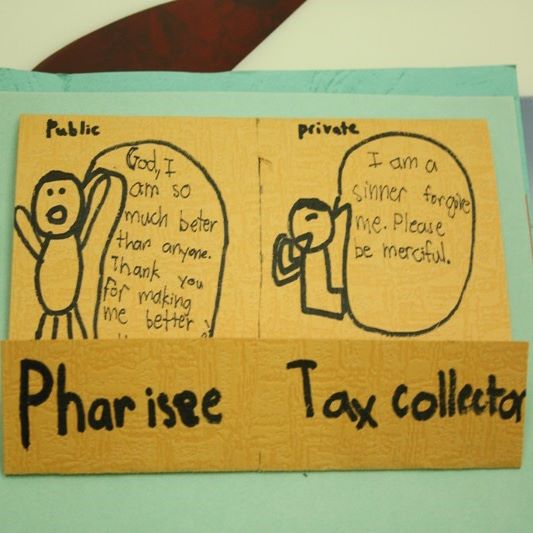Lectionary Reflection for the 23rd Sunday after Pentecost, Year C
He also told this parable to some who trusted in themselves that they were righteous and regarded others with contempt . . . Luke 18:9
Ouch, Jesus! Why do you have to shine your bright and penetrating light into my heart of darkness and brokenness, into the places I’d rather not discuss or even acknowledge? I mean, come on Jesus, for me to be right (or righteous) doesn’t someone else have to be wrong (or wretched)? I go to church, I put something in the offering plate most weeks, I
serve on a committee or two, and when I have extra time I volunteer to serve those less fortunate. I clean up pretty well compared to most folks, don’t I? Surely I pass the righteousness sniff test in a world filled with boors and louts and lazy miscreants.
The good religious leader in Jesus’ parable can easily be adapted for today—it’s a timeless role. All one has to do is peruse Facebook posts and Twitter feeds to see how human nature plays out predictably in the “best foot forward masks” so many of us project for the world to see. Who wants to be vulnerable and transparent at the risk of being exposed as inadequate or “less than”? We want/need to be part of the in-crowd. Human nature demands that there to be an outsider to justify embracing the status of an insider. We need someone to be more despicable in our eyes in order to hide our own failings and frailties. Somebody has to be the scapegoat, right?

Not so, according to Jesus, who consistently draws the circle wider and upends worldly ways of assessing righteousness, of who’s in and who’s out, and who stands justified in the eyes of God. It’s not the thin veneer of religious insider who ends up meeting the righteousness requirement, but rather the vulnerable and self-admitted outsider who cries out for mercy and who humbles himself before God. It’s the self-admitted and humbled sinner who receives mercy and is elevated in the story.
It is so much easier to play the role of the insider and to curve in on oneself and one’s fears and insecurities. It feels less risky and ever so much more right. But this is not what Jesus desires of us. Jesus wants us to humble ourselves, to admit our failings and sins (no one is exempt!), and to lean fully on God for mercy. There is no room for bootstraps and lone ranger mentality in the reign of God. The preferential treatment and free-flowing mercy is dispensed lavishly and lovingly to those on the margins.

Don’t be mistaken. God hears all prayers. God loves this entire creation and proclaims everything good. God loves “Pharisees” and “tax collectors”, and God longs for all people to recognize their place in the divine arms of mercy and grace. The stewards of God’s mercy and grace, however, are the ones who recognize it for the precious gift it is and who aren’t afraid to plead for it. Knowing that everything belongs to God, is of and from God, and depends on God makes it much easier to live lives of grace-full wholeness and to extend God’s love and mercy to others. You see, the beauty of God’s mercy is that it’s wide and deep enough to include everyone in its reach. There is no need for lines of inclusion and exclusion where God is concerned because it is the divine desire for all to be held in the glorious grip of grace.
Go ahead then. Let go of the fractured need to exclude others and stand in better stead. Beat your breast in prayer—preferably metaphorically—and lean humbly into God’s open arms of forgiveness and mercy. You will find rest for your weary soul and radical inclusion as a child of God. Steward the gift of God’s mercy by allowing yourself to be bathed in it and then in turn leading others to it. Draw the circle wider to include those “other people”—thieves, rogues, adulterers, and tax collectors, the whole ragtag beloved bunch. Prepare to be amazed at how God can redeem and exalt the brokenness of others (and you!). Amen.
In Worship
With Youth
With Children
Photos:Ronnie, Jana Allingham, and Keoni Cabral, Creative Commons. Thanks!




Leave a Reply